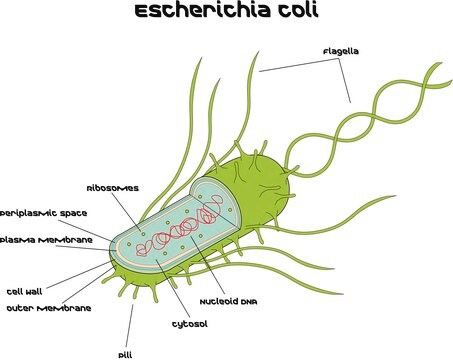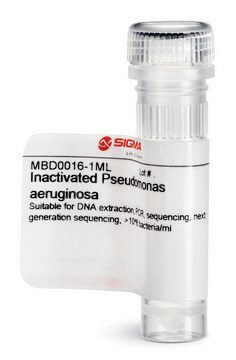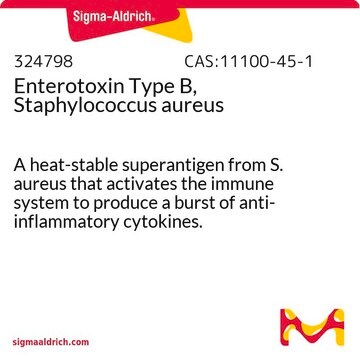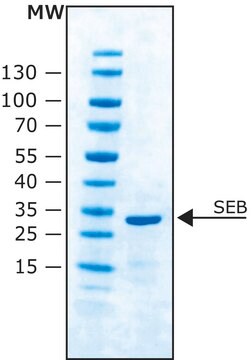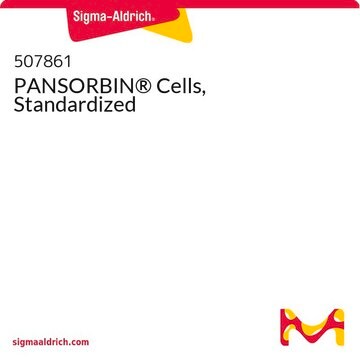S2014
Staphylococcus aureus
buffered aqueous suspension, Wood 46 strain
About This Item
Recommended Products
biological source
Staphylococcus aureus
Quality Level
sterility
Not processed or packaged aseptically
form
buffered aqueous suspension
composition
Cell suspension, ~10% wet weight/volume
storage temp.
2-8°C
General description
Application
- to mimic infection and induce fever in Pekin duck
- to test its effect on hemocyte morphology in hemolymph samples from beetle Tenebrio molitor larva
- in the antibacterial activity and minimum inhibitory concentration (MIC) assay with gedunin and 7-deacetoxy-7αhydroxygedunin potassium salt
Biochem/physiol Actions
Physical form
Preparation Note
Analysis Note
Storage Class Code
10 - Combustible liquids
WGK
WGK 3
Flash Point(F)
Not applicable
Flash Point(C)
Not applicable
Regulatory Listings
Regulatory Listings are mainly provided for chemical products. Only limited information can be provided here for non-chemical products. No entry means none of the components are listed. It is the user’s obligation to ensure the safe and legal use of the product.
PDSCL
Poisonous substance
JAN Code
S2014-BULK:
S2014-50ML:4548173210179
S2014-VAR:
S2014-10ML:4548173210162
Certificates of Analysis (COA)
Search for Certificates of Analysis (COA) by entering the products Lot/Batch Number. Lot and Batch Numbers can be found on a product’s label following the words ‘Lot’ or ‘Batch’.
Already Own This Product?
Find documentation for the products that you have recently purchased in the Document Library.
Customers Also Viewed
Our team of scientists has experience in all areas of research including Life Science, Material Science, Chemical Synthesis, Chromatography, Analytical and many others.
Contact Technical Service